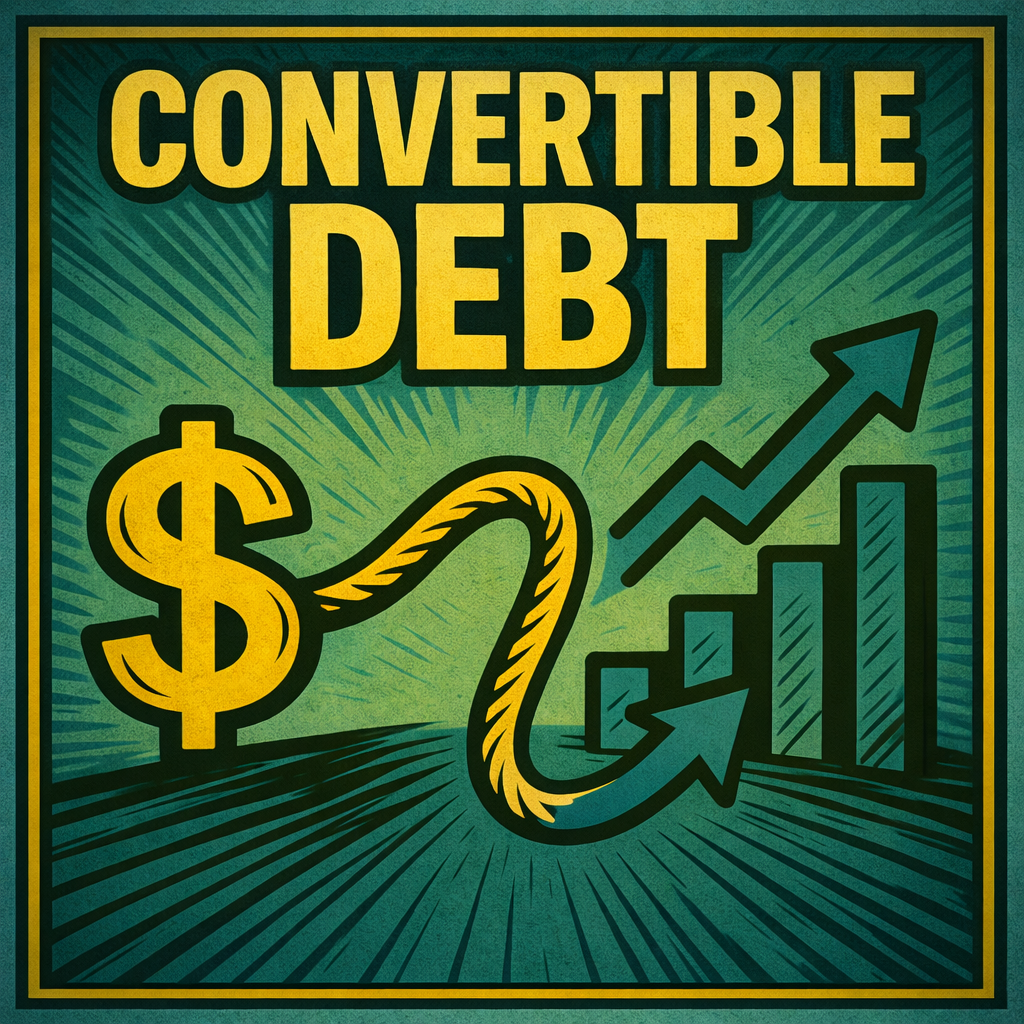
Convertible Debt
“Part loan. Part option”
Convertible debt is a loan that starts as debt but can convert into equity later, usually during a future financing round or when certain conditions are met.
It gives a business access to capital now without locking in a valuation, while giving investors the option to participate in the upside if the company grows.
It’s a hybrid instrument: part loan, part early-stage investment.
Why It’s Used
Founders delay dilution until the company is stronger and more valuable.
Investors get downside protection (as lenders) and upside potential (as equity holders).
Valuation can wait — ideal when the company is too early or the market is too uncertain to price.
Simple and fast compared to equity financing.
Convertible debt became especially common in the startup ecosystem, but it is also used in later-stage and even traditional private-company transactions.
How It Works (Simple Breakdown)
Investor lends money (ex: $500,000)
Business issues a convertible note
Note has typical debt terms:
Interest rate (often 4%–8%)
Maturity date (12–36 months)
Conversion event occurs
Usually triggered by a future equity raise, sale, or maturity
Investor receives equity at a discount or subject to a valuation cap
The investor is repaid in ownership, not cash.
Key Terms
1️⃣ Conversion Discount
Investors receive equity at a discount (often 10%–30%) to the next valuation round.
They get shares cheaper than new investors.
2️⃣ Valuation Cap
A ceiling on the company valuation used for conversion.
Protects early investors from being diluted if the valuation skyrockets.
3️⃣ Interest Accrual
Interest doesn’t have to be paid monthly — it can accrue and convert into equity at the same terms as the principal.
4️⃣ Maturity Date
If no qualified financing happens by maturity, the investor may:
- Extend the note
- Convert at a pre-set valuation
- Or request repayment (rarely enforced for early-stage deals)
Example Scenario
A startup raises $750,000 in convertible debt:
6% interest
20% discount
$5M valuation cap
Two years later, the company raises a Series A at a $10M valuation.
Because of the valuation cap, the convertible note converts as if the valuation were $5M, not $10M.
👉 The investor gets more equity for their early risk.
Benefits
For Founders
✅ Delay dilution until a stronger valuation
✅ Faster and cheaper than issuing equity
✅ No monthly debt payments
✅ Avoids valuation negotiations during early uncertainty
For Investors
✅ Downside protection (debt status)
✅ Upside potential (discount + cap)
✅ Seniority over equity holders
✅ Participation in future growth
Drawbacks
⚠️ Notes can create complex cap tables later
⚠️ Stacked notes may dilute founders unexpectedly
⚠️ Conversion terms must be carefully negotiated
⚠️ Not well-suited for companies with irregular growth or no clear equity path

Final Thoughts
Convertible debt can be flexible, founder-friendly capital that bridges early-stage uncertainty.
It lets companies raise money today, agree to valuation tomorrow, and reward investors for taking early risk — without forcing immediate dilution.

